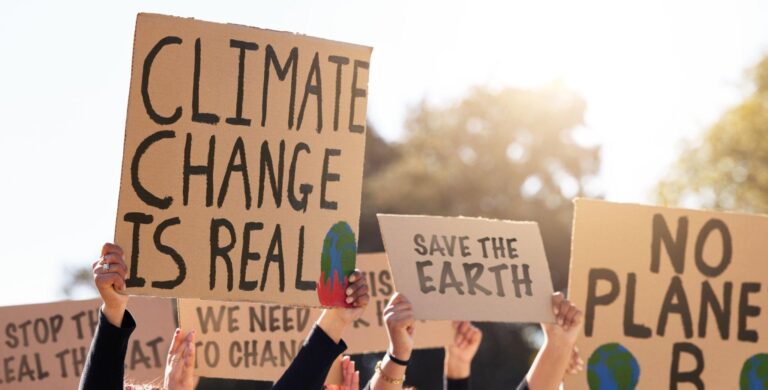As 2024 dawns, we stand at the climate precipice with key questions urgent before us. Have nations awakened enough to match action to the existential scale of this threat? In this decisive decade, our trajectory will steer toward either climate catastrophe or a livable planet for generations. Despite expanding efforts like the worldwide phase-out of coal and breakthroughs in renewable technology, progression still needs to catch up to the rapid transformations scientific models underscore as essential. If we fail to confront climate change 2024 with the urgency and resolve it demands, we seal our fate toward an increasingly inhospitable world.
While hope simmers in rising collective awareness and conscience, immediate, united commitments must radically accelerate and deepen across all sectors to mitigate the worst consequences. With stakes this extreme, even incremental progress brings us back from the brink.
The Science is Clear – And So Are the Effects
Mounting data paints an undeniable picture – human activity destabilizes the climate. Scientists worldwide underscore the quickening pace of planetary overheating as greenhouse gases amass, heatwaves intensify, polar ice vanishes, and floods, fires, and storms surge out of bounds. The verdict is consistently urgent. We approach tipping points.
Sea Level Rise Threatens Coastal Areas
Rising ocean waters endanger coastal cities and small island nations. Accelerating sea level rise already forces communities to grapple with more frequent flooding. Scientists urge immediate adaptation plans be put in place to protect vulnerable populations and infrastructure.
Biodiversity Loss Reaches Critical Point
One million plant and animal species face extinction in the coming decades due to climate change. Global leaders warn we approach irreversible loss of vital ecosystems that sustain life. Restoration projects have begun but need to be more funded and supported politically. Suppose climate change 2024 continues on its current catastrophic trajectory. In that case, the number of species facing extinction will only continue to grow, possibly leading to the collapse of ecosystems vital to human survival.
Youth Continue Climate Activism
Inspired by the likes of Greta Thunberg, the youth climate movement only expands as young people recognize their future hinges on action today. Grassroots campaigns pressure businesses and governments to pursue bolder environmental policies aligned with keeping global warming below 1.5°C.

Climate Change 2024 -What Has Improved?
Despite the obvious challenges, meaningful progress gives hope that climate catastrophe may be averted if commitments continue.
Clean Energy Use Increases
Renewable electricity generation has now overtaken coal around the world. Solar and wind power expand at record rates thanks to incentives and technological improvements, making them more affordable. Several countries aim for 100% clean energy by 2030. If we continue scaling renewables at this pace and confront climate change 2024 head-on, reaching full decarbonization globally by mid-century is possible.
Carbon Pricing Gains Momentum
Pricing carbon emissions continues gaining traction globally. When paired with investing revenue into clean energy projects, carbon pricing can significantly reduce emissions. Canada, China, and the U.S. have all advanced major carbon pricing policies. Putting a price on carbon must accelerate if we hope to confront climate change 2024 successfully. Comprehensive, ambitious carbon pricing policies could provide the market signal we desperately need to reach net-zero emissions.
Reforestation Efforts Underway
Vast reforestation initiatives have been launched to help capture and store carbon naturally. Nonprofits leverage public donations and corporate sponsorships to plant billions of trees across several continents. Widespread participation is needed to reach the necessary scale.
Climate Change 2024: What Needs to Happen?
Sustaining momentum and pushing even further remains imperative if catastrophic climate change be avoided in the coming crucial decades:
Adaptation Support for Developing Nations
The countries facing the worst impacts of climate change often have the fewest resources to address them. Developed nations must honour financial pledges that enable vulnerable regions to install adaptation measures and transition cleanly.
Acceleration of Clean Energy Adoption
The renewable energy transition must accelerate to levels beyond what even the most ambitious countries currently pursue. Phasing out fossil fuels requires affordable renewables to meet growing energy demands reliably, especially in developing economies.
Climate Change 2024: Changes in Food Production
Shifting agricultural practices to more sustainable models presents a dual opportunity to feed growing populations while storing carbon in the soil. However, this necessitates greater public research and private investments in regenerative agriculture.
Climate Change 2024 presents a mixed picture of progress yet peril. While meaningful advancements towards clean energy and carbon emissions reductions signify hope, the hard scientific truth remains that our climate crisis will deepen by the year. Much work still lies ahead to secure a livable planet for our children. But the foundations built through activism, policy changes, and technological innovation equip us to meet the challenge – if governments, businesses, and individuals collectively summon the willpower and funding to enact solutions at unprecedented speed and scale.
We can still avoid climate catastrophe by pursuing global environmental justice and adapting our most fundamental economic and social systems to sustainable models. Though the hour is late, human ingenuity and compassion may prevail if we act unified. Our shared future hangs in the balance. We must confront climate change 2024 head-on if we hope to preserve our world.

2 Comments
Pingback: The Power Of Young Climate Activists In 2023 - Wrxnews.com
Pingback: Global Struggle: International Agreements To Tackle Climate Change - Wrxnews.com